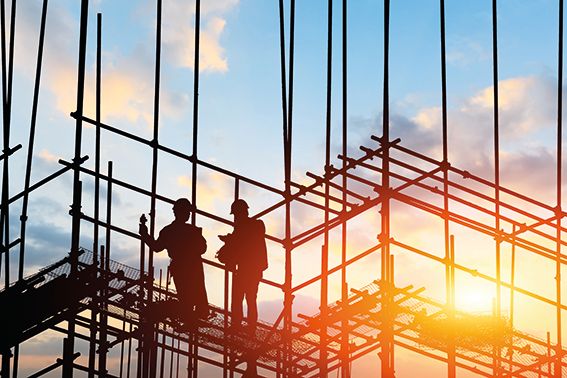
Construction output expanded rapidly in April, virtually matching the six-and-a-half-year record set the previous month, according to the latest data from IHS Markit/CIPS, as pandemic restrictions are lifted.
The Construction Purchasing Managers’ Index PMI hit 61.6 in April, slipping back from 61.7 in March.
However, the survey added that new orders rose to their highest level since September 2014, the lengthening of suppliers’ delivery times was the third-greatest since the survey began in 1997. While cost inflation jumped to an all-time high.
The report says: “The latest reading signalled a strong pace of expansion in the construction sector, with commercial work, civil engineering and house building all growing at solid rates.
“Total new work increased for the 11th consecutive month and at the fastest rate for just over six-and-a-half years, while the pace of job creation was the steepest since December 2015.”
Naismiths director of the national property consultancy and surveyors Gareth Belsham says: “The gas pedal is still stuck firmly to the floor. But the construction industry’s
“Lewis Hamilton-style acceleration now has an unwanted passenger – inflation.
“Suppliers of key materials like steel and timber are struggling to keep up with surging demand and this is driving prices ever skyward.
“But this is a mere fly in the ointment. After a rollercoaster ride during 2020, the construction industry is back squarely in boom territory.
“It says much that housebuilders – typically the most recession-defying sector of the construction industry – have been overtaken by firms specialising in commercial and infrastructure projects.
“Growth is refreshingly broad-based and sentiment is soaring. Well over half of the firms surveyed for this PMI data predict that demand will pick up even further over the next 12 months. Building is back with a bang.”
Yesterday, the Bank of England forecast the economy will jump by 7.25% this year, its fastest in more than 70 years, as extra government spending is expected to aid the UK’s recovery.
Bank governor Andrew Bailey said “a bounce back” of this size would get the economy back to the size it was in 2019.
Last year, the economy shrank by 9.9%, due to a series of lockdowns sparked by the health crisis, the biggest fall in 300 years.



